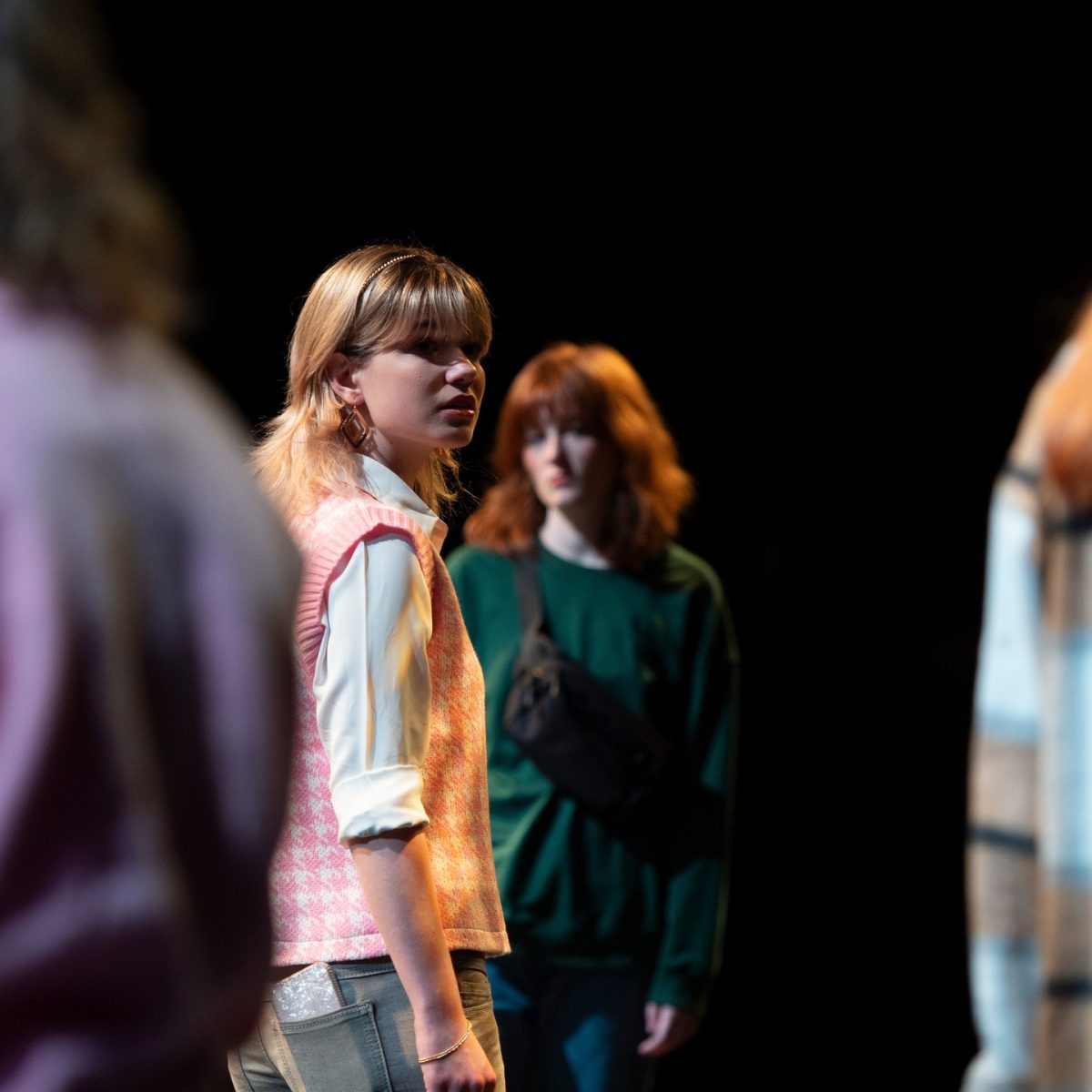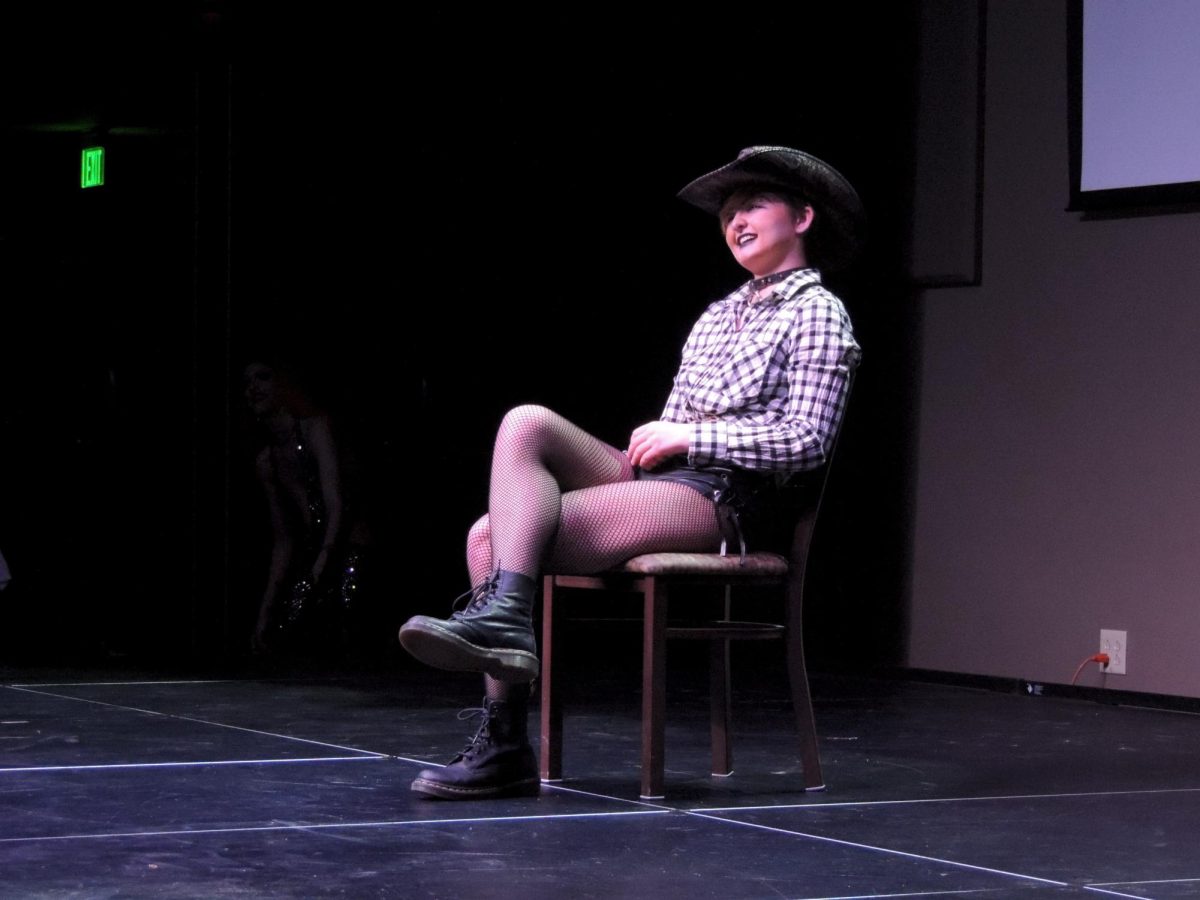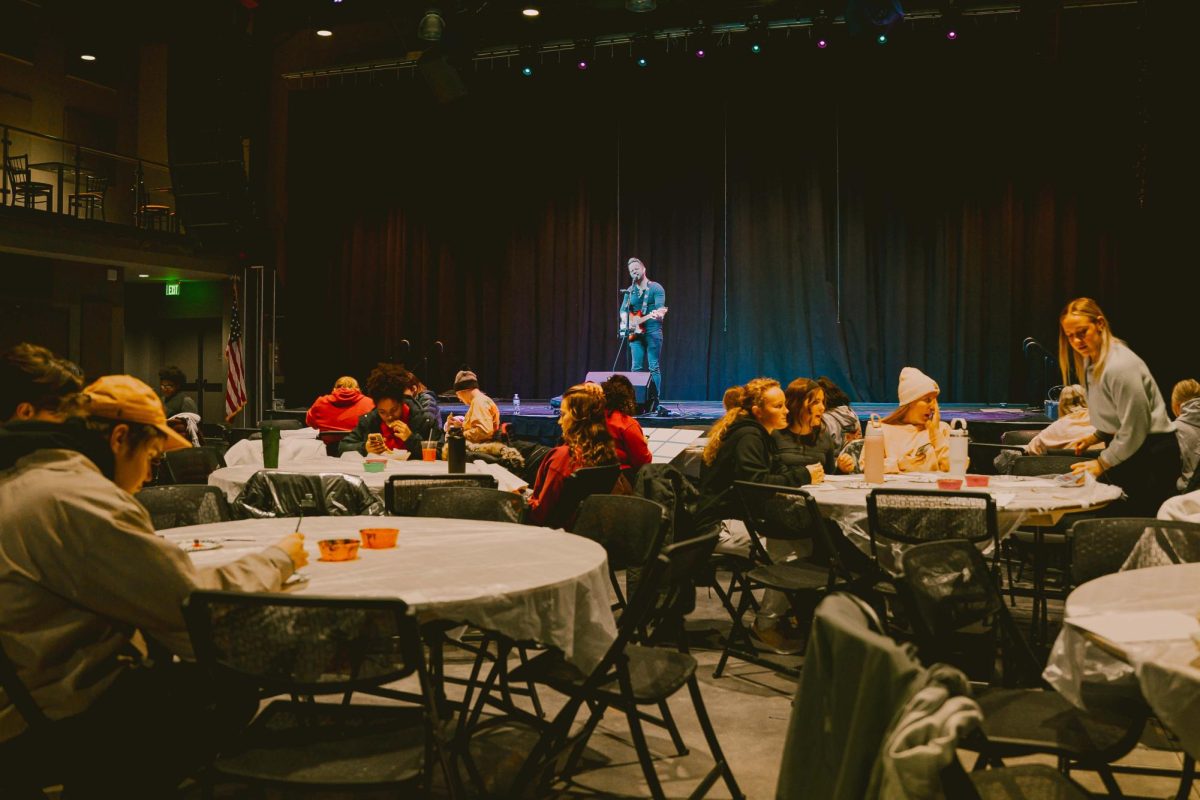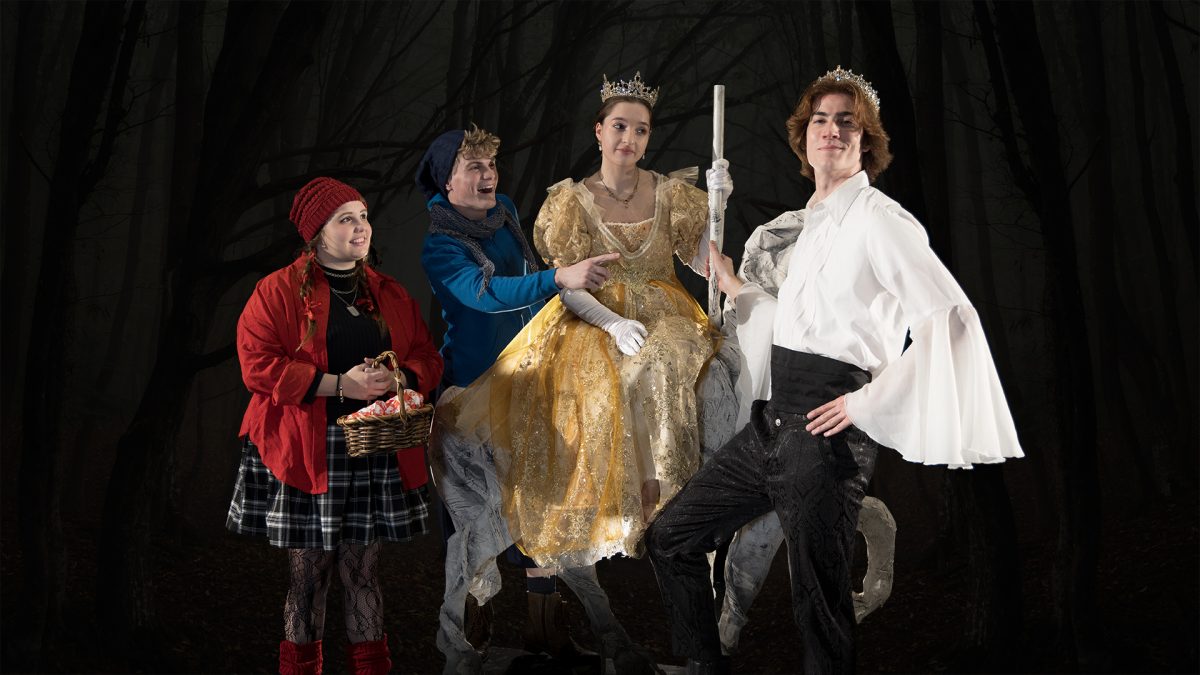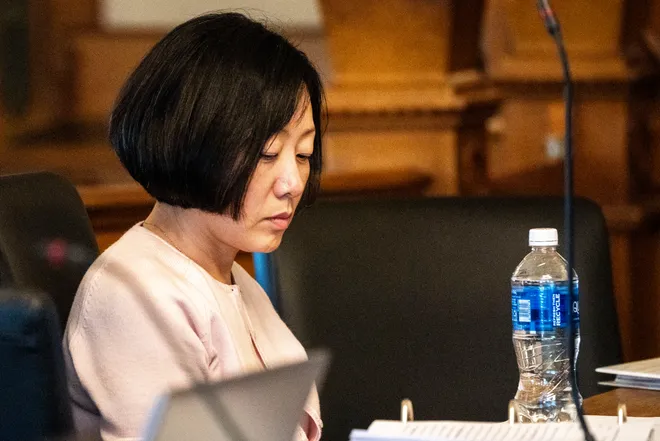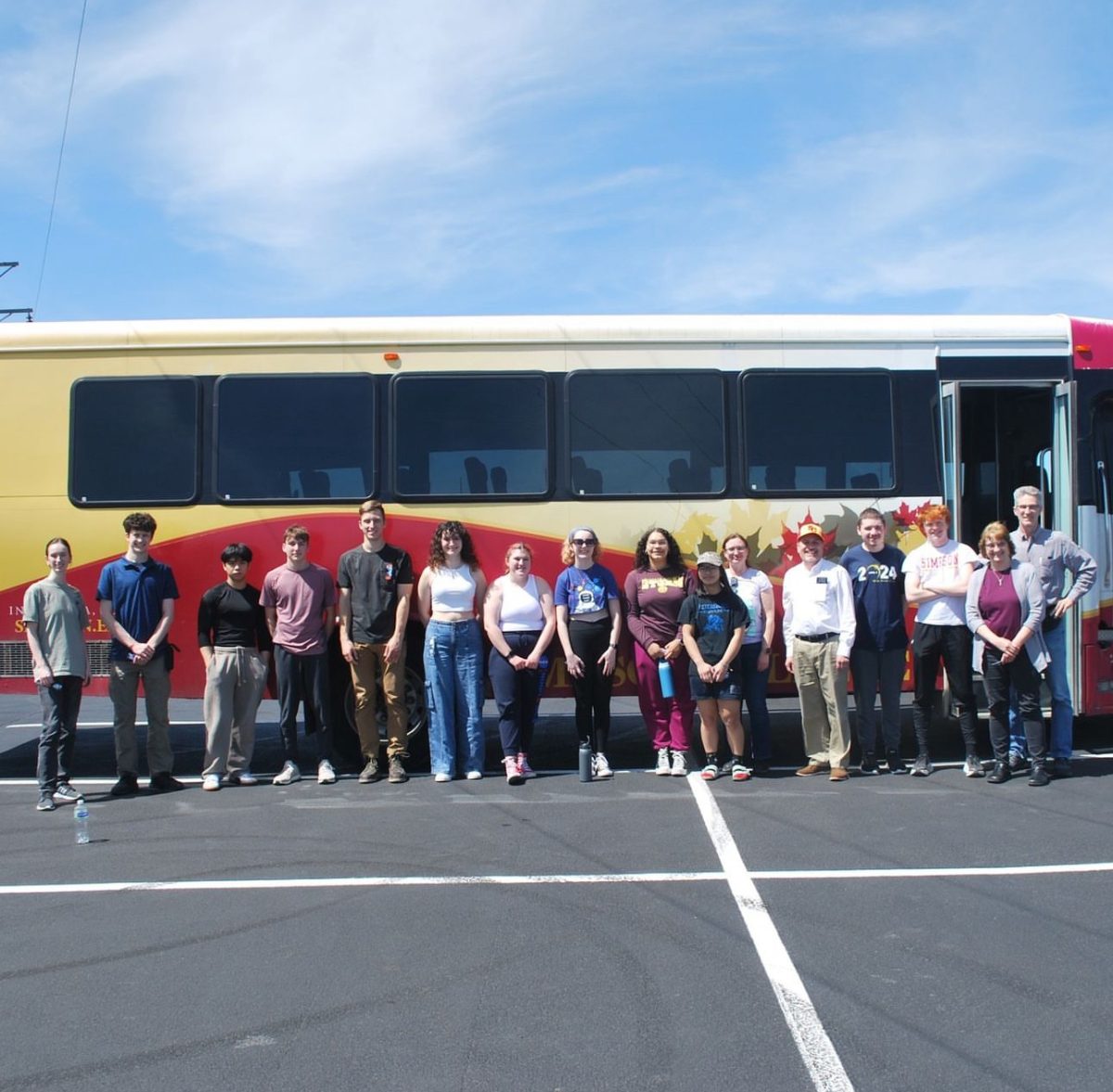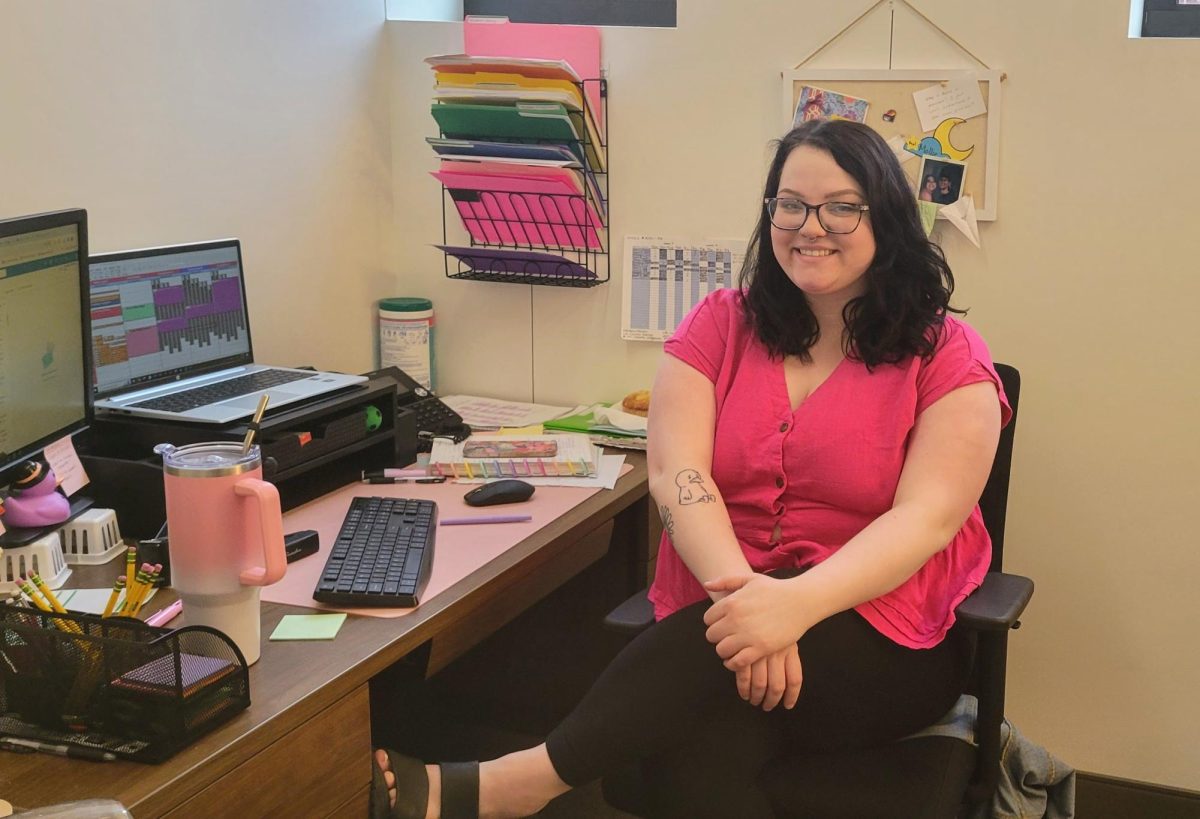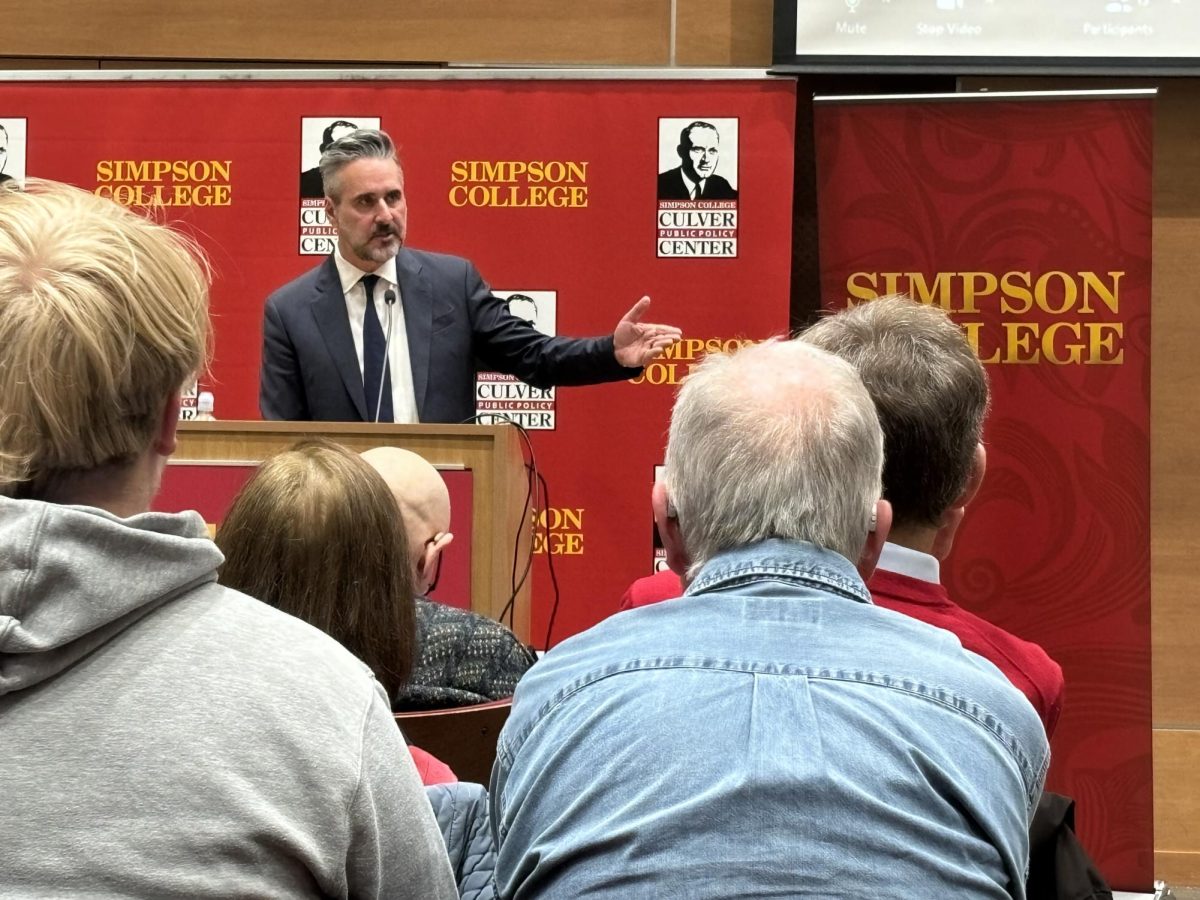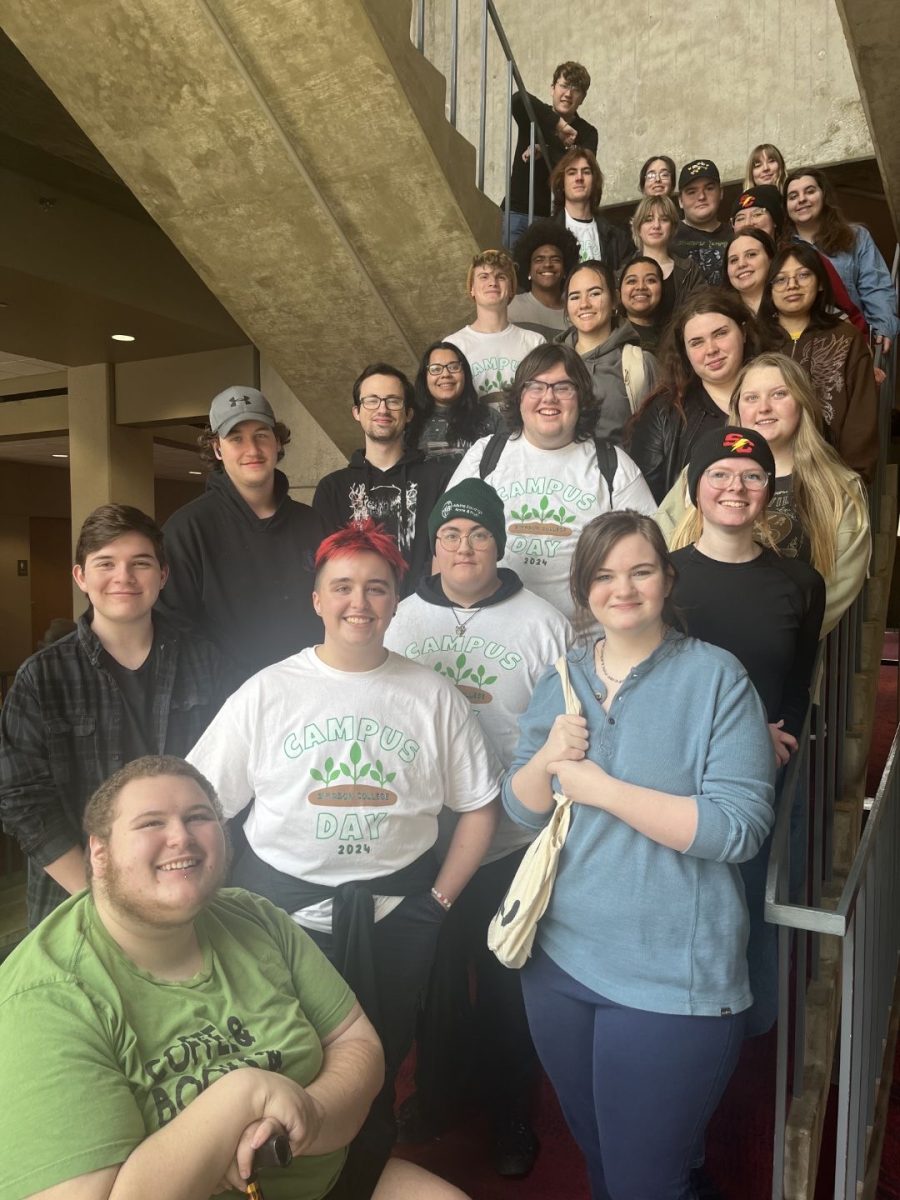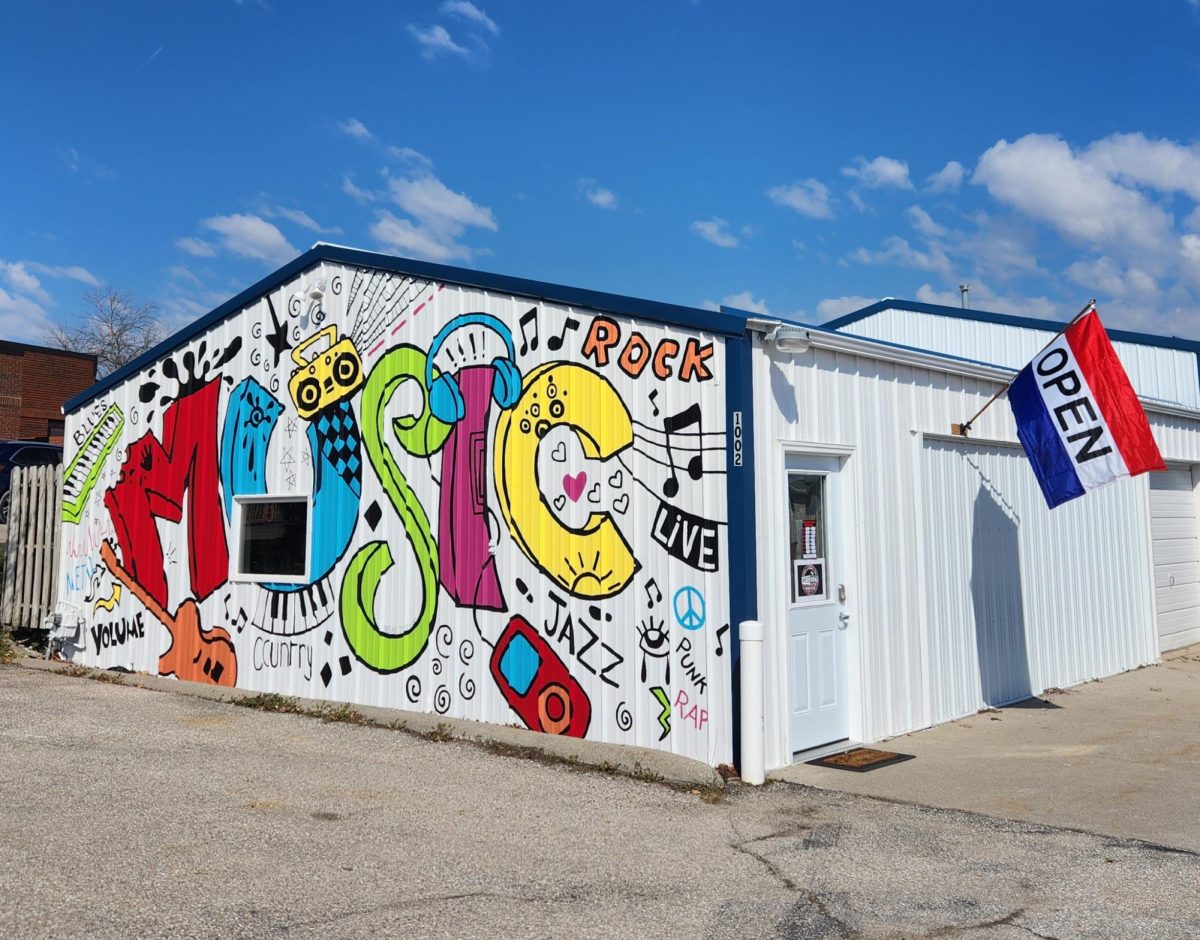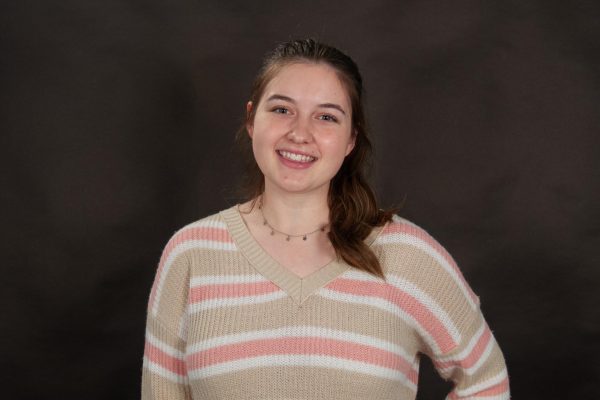Simpson Productions produced “Good Kids” by Naomi Iizuka from Oct. 26-28. The play tackles the intense topic of sexual assault by using a true story to explain the impact sexual assault has on a community.
The story is set in a midwestern high school, where a teen girl attends a party and gets raped by members of the school’s football team. The assault is recorded and posted online for all to see and spread. The play approaches the topic of rape in a technology-filled world and how, once something is posted, it never really goes away.
Students took on the heavy roles of characters involved in the assault. Stage manager Dorian Burke said, “Living in that mental space was definitely difficult. As someone who is working primarily in tech, it was easier for me to distance myself sometimes, but it was still constantly a huge part of what we’re talking about.”
Taylor Kouski, who played Daphne, felt a similar struggle while in her role.
“It’s one of those things where you start feeling guilty about something that you never even did,” Kouski said. “As you add more elements to it, like the recordings and the audio and the visuals, then it just becomes much more real.”
Students in the production had their fears about the play but believed it was still an important piece to show to the community. Members of the production took a survey before the play was officially chosen, explaining their fears and hesitations about acting in such a heavy piece.
“I wasn’t completely sure about the show,” said Burke. “When it’s the first read-through, you are thinking, ‘How are we going to put this on? How is everyone going to feel about this?’”
In the end, Simpson Productions decided the play told a story that needed to be heard. The struggle came with finding actors and making sure everyone was comfortable in their roles.
“At the beginning, when we didn’t really know fully what it was about because not everyone had read it, it was a little bit more divisive,” Burke said. “I think a lot of men or male presenting people were more uncomfortable with playing the roles of the sexual assaulters.”
Actors had to brief their families about the challenging roles they played and explain the triggering topic to prepare them for the performance.
“My little brother came, he’s 12. And so it’s really hard for me as an older sibling to show that but still set the reminder that, like me as a person, I’m not like that,” first-year Jeri Eisbrenner said.
While preparing for the play to be performed, the cast talked about how to respond to the audience’s reactions.
“People respond to traumatic things differently. Some people laugh because they’re uncomfortable. Some people laugh because they genuinely think it’s funny, and they don’t think there’s anything wrong with it,” said Kouski.
The theater team believed that, despite the triggering subject, the topic is too important to skip over. That the story needs to be told, talked about, and reflected on.
“It doesn’t take a lot to spread kindness,” said Eisbrenner. “The things that you say really do impact people on a larger scale.”
“I hope people walk away and think, ‘Who am I going to be in that situation? Am I going to be the friend that leaves their friend at a party? Am I going to be the person who victim blames someone?’” Kouski said. “‘Or am I going to be the girl who calls 911 and stands up for that person?’”






